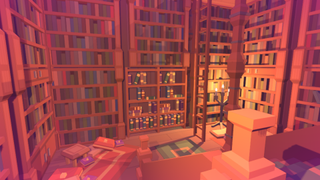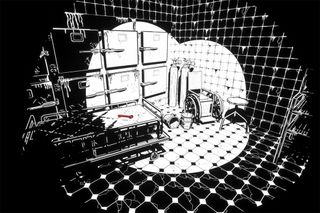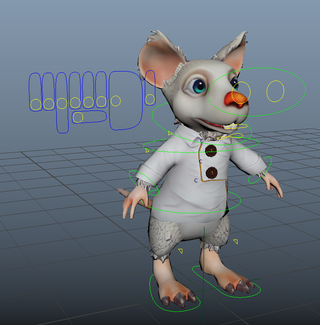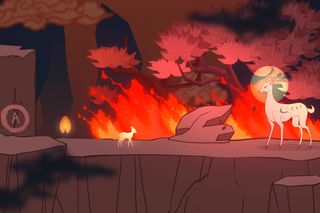The best game design programs, ranked by the Princeton Review 2022
Whether it’s the best teachers, the coolest graduates, or the most cutting-edge facilities, the Princeton Review has worked to find a great school for you.
Did you know about these game design jobs?
So you want to go to college to learn game design, but maybe you're not sure what career path is right for you. Dive far enough into the world of game development and you'll realize there are countless types of jobs drawing upon infinite amounts of skills. It's hard to pick where you should focus, which is why we've laid out two lesser-known game design jobs, what they entail, and why the people working them have stuck with it.
Narrative Designer
“A game writer creates pieces of narrative that a game player assembles into their story of playing the game and then shares with others when he talks about how they played," said Professor Stephen Jacobs, citing Red Storm Games writer Richard Dansky.
Rather than strictly working on the "story" of a game, a narrative designer may work to build background details, a meta-story, and world design. A narrative designer can also impact gameplay, such as when Professor Jacobs worked on "The Original Mobile Games," a collaborative project that charted the history of the first handheld games from the 1800s to the early 1900s.

"Here we were telling the story of original, hand-held pocket games from the mid-1800s to early 1900s, and showing how the gameplay mechanics were the same between these older games and modern mobile games," Jacobs said.
Don't think you can get away without a bit of programming, though. Being a narrative designer relies just as much on the "designer" part of the job title.
"As games become more complex, it is necessary for narrative designers to understand the whole process of development, so they know that a cutscene is not just writing the dialogue, but setting up what the player has to do, and requires to coordinate with the artists, sound designers, voice actors, localization," says NYU's Professor Clara Fernández-Vara.

A narrative designer must also know their toolset enough to place quest assets and hook up scripts provided by engineers and system designers.
Narrative designers are also establishing how a player interacts with a game, providing them a role, and helping them understand complex systems, Fernández-Vara says.
What makes me proud is that my games appeal to people who may not think of themselves as “gamers”, but they indeed love video games and play them devotedly and with a critical eye," Fernández-Vara adds. "They just don’t identify with the stereotype of the gamer."
Gameplay Engineer

The humble gameplay engineer might be one of the most deceptively interesting jobs in the industry. Rather than strictly working on lower-level engineering tasks like memory or physics, the gameplay engineer works closely with designers of all stripes to help their vision come to life. Or more simply, you're writing code that directly impacts gameplay, increasing playability.
"To be a great gameplay engineer, one must embrace computing in the context of game design," says David Schwartz, director of Rochester Institute of Technology's School of Interactive Games and Media. "The student needs to learn introductory programming, data structures and algorithms, a variety of languages like C++ and C#, and enough computational techniques and concepts to interact with audio, graphics, physics, AI, interfaces, design, assets, and other aspects of a game."

In some ways, the gameplay engineer is also responsible for how big the game in question can be, or how powerful a player can become. They often work on the math and coding behind player upgrades, notifications, or other in-game UI events. If you like the idea of engineering from a higher vantage point on a project, this might be for you.
“The greatest gift is seeing others actually playing and enjoying something that I have helped to create," says Clark University Professor Amanda Theinert. "Especially knowing all the little things that went into that project behind the scenes that the end-user doesn’t even know about. Every project serves a unique set of challenges and that’s where creative problem solving comes in."

Whatever role you choose to pursue in videogame design, collaboration is the heart of almost every successful game.
"Those skills include communicating your ideas clearly, through visualization as well as words; knowing how to observe and listen to what makes your game tick and how it affects your players; understanding how many different disciplines come together to create a game experience, from writing code to writing dialogue and crafting visual assets; and much more besides," says NYU Department Chair Naomi Clark.
Perhaps the most common response from every person we spoke with: That they do what they do because they love making games, collaborating, and knowing that they're making an impact on players.
The biggest gaming news, reviews and hardware deals
Keep up to date with the most important stories and the best deals, as picked by the PC Gamer team.
